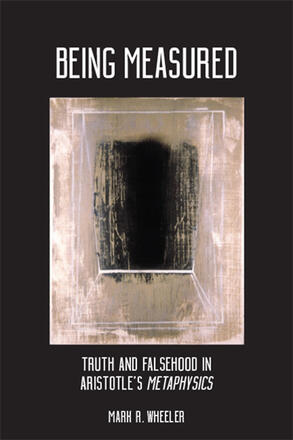
Being Measured
Truth and Falsehood in Aristotle's Metaphysics
Alternative formats available from:
Advances an interpretation of Aristotle’s theory of truth in terms of accurate measurement.
Description
On the basis of careful textual exegesis and philosophical analysis of Aristotle's Metaphysics, Mark R. Wheeler offers a groundbreaking interpretation of Aristotle's theory of truth in terms of measurement. Wheeler demonstrates that Aristotle's investigation of truth and falsehood in the Metaphysics is rigorously methodical, that Aristotle's conceptions of truth contribute to the main lines of thought in the treatise, and that the Metaphysics, taken as a whole, contributes fundamentally to Aristotle's theory of truth. Wheeler provides not only an excellent introduction to the main problems in the theory of truth but also provides contemporary truth theorists with a rigorous explanation of Aristotle's theory of truth.
Mark R. Wheeler is Professor of Philosophy and Director of the Institute for Ethics and Public Affairs at San Diego State University. He is the coeditor (with William A. Nericcio) of 150 Years of Evolution: Darwin's Impact on Contemporary Thought and Culture.
Reviews
"The book's scholarship is impeccable. " — CHOICE
"Wheeler's book constitutes a major contribution to the scholarship on Aristotle's theory of truth and falsehood. The book offers much in terms of how to read the Metaphysics itself, and Wheeler's interpretation will strike some as defending a rather controversial and complex thesis centered around the idea that the Metaphysics ought to be read as a more systematically and philosophically unified document with the articulation of a robust theory of truth at the center of the entire work. Wheeler offers much food for thought. " — Blake Hestir, author of Plato on the Metaphysical Foundation of Meaning and Truth